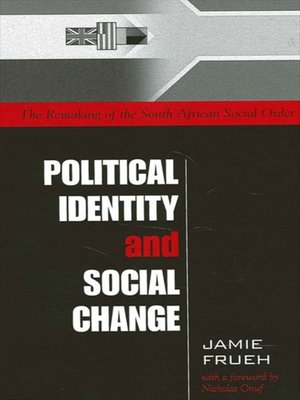Political Identity and Social Change
ebook ∣ The Remaking of the South African Social Order · SUNY Series in Global Politics
By Jamie Frueh

Sign up to save your library
With an OverDrive account, you can save your favorite libraries for at-a-glance information about availability. Find out more about OverDrive accounts.
Find this title in Libby, the library reading app by OverDrive.



Search for a digital library with this title
Title found at these libraries:
| Library Name | Distance |
|---|---|
| Loading... |
Explores issues of political identity and the social changes that ended apartheid in South Africa.
Political Identity and Social Change builds upon the constructivist theory of political identity to explore the social changes that accompanied the end of apartheid in South Africa. To gain a better understanding of how structures of identity changed along with the rest of South Africa's institutions, Frueh analyzes three social and political conflicts: the Soweto uprisings of 1976, the reformist constitutional debates of 1983–1984, and post-apartheid crime. Analyzing these conflicts demonstrates how identity labels function as structures of social discourse, how social activity is organized through these structures, and how both the labels and their power have changed during the course of South Africa's transition. In this way, the book contributes not only to the study of South African society, but also provides lessons about the relationship between identity and social change.







